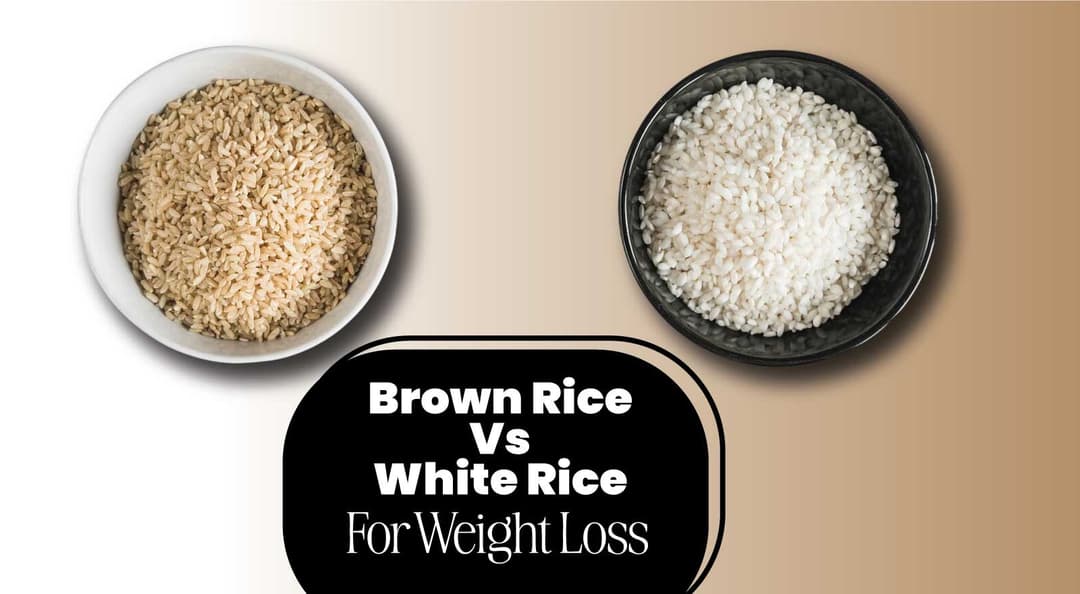Ever looked in the mirror and wondered, "Am I at a healthy weight?" It's a common question, and the Body Mass Index (BMI) has become a popular tool to answer it. This seemingly simple calculation takes your weight and height and spits out a number that supposedly reflects your weight category (underweight, healthy, overweight, or obese). But is BMI the ultimate judge of a man's health?
Being a handy tool, BMI helps people recognise how their weight relates to their height. It is like a short snapshot of standard body thickness that gives people an idea of whether they are underweight, average weight, overweight or obese. This is important because weight plays a significant role in health and affects the likelihood of conditions such as diabetes, coronary heart disease and some cancers.
This guide dives into the world of BMI for men, explaining the formula and BMI calculator for men with age, its strengths as a population-level indicator, and its limitations when applied to individuals. We'll explore why BMI is a common metric for healthy weight, but also unveil some interesting facts that reveal it's not a one-size-fits-all answer. Keep reading!
Table Of Contents
- What Is A Good BMI For A Man?
- What Is The Formula For Calculating BMI For Men?
- Body Mass Indicators for Men
- Why Is BMI Used To Measure Obesity And Overweight?
- Dietitian’s Recommendation
- The Final Say
- FAQs
- References
What Is A Good BMI For A Man?

Determining an optimal BMI range for men involves considering factors linked to improved health outcomes. Here's a breakdown of what constitutes a favourable BMI range for men and the scientific rationale behind it:
1. Normal Weight Range
For men, a BMI falling between 18.5 and 24.9 is typically regarded as normal. This range is associated with reduced risks of various obesity-related conditions such as cardiovascular diseases, type 2 diabetes, and certain cancers. Scientific studies consistently show that maintaining a BMI within this range correlates with better overall health outcomes.
2. Underweight Range
A BMI below 18.5 indicates underweight status for men. While being underweight may not necessarily lead to immediate health complications for everyone, it can be associated with concerns like compromised immune function and nutritional deficiencies. Individuals falling into this category might benefit from interventions to build their nutritional status and overall health.
3. Overweight and Obesity Risk Range
BMIs between 25 to 29.9 classify as overweight, while values of 30 or higher signify obesity for men. These categories are linked with increased risks of developing chronic health conditions, including hypertension, dyslipidemia, and insulin resistance.
Numerous scientific studies demonstrate the strong association between higher BMIs and elevated health risks. This gives rise to the importance of weight management in battling these concerns.
4. Muscle Mass Consideration
It's crucial to recognise that BMI may not accurately reflect body composition, especially among individuals with higher muscle mass. This group may register a higher BMI due to muscle weight rather than excess fat, which does not necessarily indicate adverse health outcomes.
Therefore, when assessing good BMI for men, it is essential to consider other factors like waist circumference and body fat percentage for a more comprehensive understanding of an individual's health status.
5. Personalised Health Assessment
While BMI offers valuable insights, evaluating an individual's health holistically is imperative. Factors such as lifestyle habits, overall health status and family history should be considered alongside BMI to tailor personalised health recommendations effectively.
Consulting with a healthcare professional can provide individualised guidance on maintaining a healthy weight and reducing the risk of obesity-related health issues.
What Is The Formula For Calculating BMI For Men?
To calculate your BMI index for men, divide your weight in kilograms by the square of your height in metres. The resulting number falls into one in all four classes: underweight, normal, overweight, or overweight.
The calculation is based on the following formula:
Formula: weight (kg) / [height (m)]2
The formula for the BMI scale for men is the weight(in kgs), with the metric system divided by height in square metres. Because height is commonly measured in centimetres, divide height in centimetres by 100 to obtain height in metres.
Example: Weight = 68 kg, Height = 165 cm (1.65 m)
Calculation: 68 ÷ (1.65) 2 = 24.98
Body Mass Indicators For Men
The major indicators of BMI for men are:
BMI | Weight Status |
Below 18.5 | Underweight |
18.5 – 24.9 | Healthy Weight |
25.0 – 29.9 | Overweight |
30.0 and Above | Obesity |
Why Is BMI Used To Measure Obesity And Overweight?
BMI serves as a commonly used measure of weight problems and obesity for several practical reasons supported by scientific evidence mentioned below-
1. Ease Of Use
BMI is quite popular for its simple technique since it requires the basic measurements of height and weight of an individual. This user-friendly technique enables rapid checks in various settings and assists health professionals and researchers assess weight status. It is a flexible way of analysing whether you are underweight, overweight or have an ideal weight.
2. Established Correlations
Despite being a direct measure of body fat, BMI shows moderate correlations with more complex methods for fat metabolism. Scientific studies consistently show that higher BMI values are consistent with the multiplied danger of many health problems, which include heart disorders, diabetes, hypertension, and positive cancers. And not just that, but if you have a lower BMI than the ideal BMI, you are prone to health issues as well.
3. Population Comparisons
BMI's widespread adoption facilitates comparisons of weight status across diverse populations and geographic regions. This comparability is invaluable for identifying disparities in obesity prevalence and informing targeted public health interventions.
It becomes easier to identify the health status of the population at large. It allows various government organisations to promote and support people who do not fall under the ideal BMI category. Statistics are always good and have a clear approach.
4. Cost-Effectiveness
Compared to more elaborate techniques like dual-energy X-ray absorptiometry (DEXA) scanning, BMI calculations are significantly more cost-effective. This affordability makes BMI particularly advantageous for large-scale screenings and epidemiological studies, where resources may be limited. Calculating your BMI is not a hassle. Neither does it create your dependency on hi-fi techniques or machines.
While BMI offers valuable insights into weight-related health risks at a population level, its application in individual assessments requires caution. Variations in muscle mass, bone density, and overall body composition can affect BMI accuracy, necessitating supplementary health indicators for comprehensive evaluations. Therefore, while BMI remains a useful tool, its interpretation should be complemented by other factors to understand an individual's health status better.
Dietitian’s Recommendation
As a dietician, I would recommend using BMI to assess nutritional status through weight and height. The importance of shifting to a balanced diet rich in nutrients, including fruits, vegetables, whole grains, lean proteins, and healthy fats. Mindful eating practices, portion control and regular physical activity are also emphasised to manage weight effectively and promote overall health.
Dt. Aditi Upadhyay
The Final Say
In summary, BMI is a widely used tool for assessing weight status, if you have an ideal weight, underweight or overweight and the associated health risks in men. While falling within the average BMI range for men 18.5 to 24.9 is generally suitable for reducing the risk of obesity-related conditions, it is essential to consider individual factors like muscle mass and overall health.
This means that while BMI provides valuable information, it is not the only measure to consider when evaluating health. Working with healthcare professionals to set and achieve personalised health goals can help men maintain a healthy weight and lessen the chances of developing obesity-related health issues. While BMI is helpful, it is essential to look at the bigger picture when managing health.
FAQs
1. What is a good BMI for a man in general?
For most men, an ideal BMI is in the 18.5 to 24.9 range.
2. What is a good BMI by age for men?
If your BMI is:
- Under 18.5 - you are very underweight and possibly malnourished.
- In the 18.5 to 24.9 - healthy weight range for young and middle-aged adults.
- 25.0 to 29.9- you are overweight.
- Over 30- you are obese.
3. What is the formula for healthy BMI for men?
The formula for BMI (Body Mass Index) for men is weight in kilograms divided by height in metres squared:
BMI = weight (kg) / (height (m))^2
4. As a man, how can I find my BMI?
To find your BMI as a man, divide your weight in kilograms by your height in metres squared. Alternatively, you can use online calculators or consult with a healthcare professional for an accurate assessment.
References
- About Adult BMI | Healthy Weight, Nutrition, and Physical Activity | CDC
- Calculate Your BMI - Standard BMI Calculator (nih.gov)
- How useful is the body mass index (BMI)? - Harvard Health
- Body Mass Index in Adults | American Heart Association
About ToneOp Fit
ToneOp Fit is a platform dedicated to improving and maintaining good health through a comprehensive range of goal-oriented health plans with up to 3 Coach support. With a range of Weight Management, Medical Condition, Detox Plans, and Face Yoga Plans, the app also provides premium health trackers, recipes and health content. Get customised diet, fitness, naturopathy & yoga plans and transform yourself with ToneOp.









































